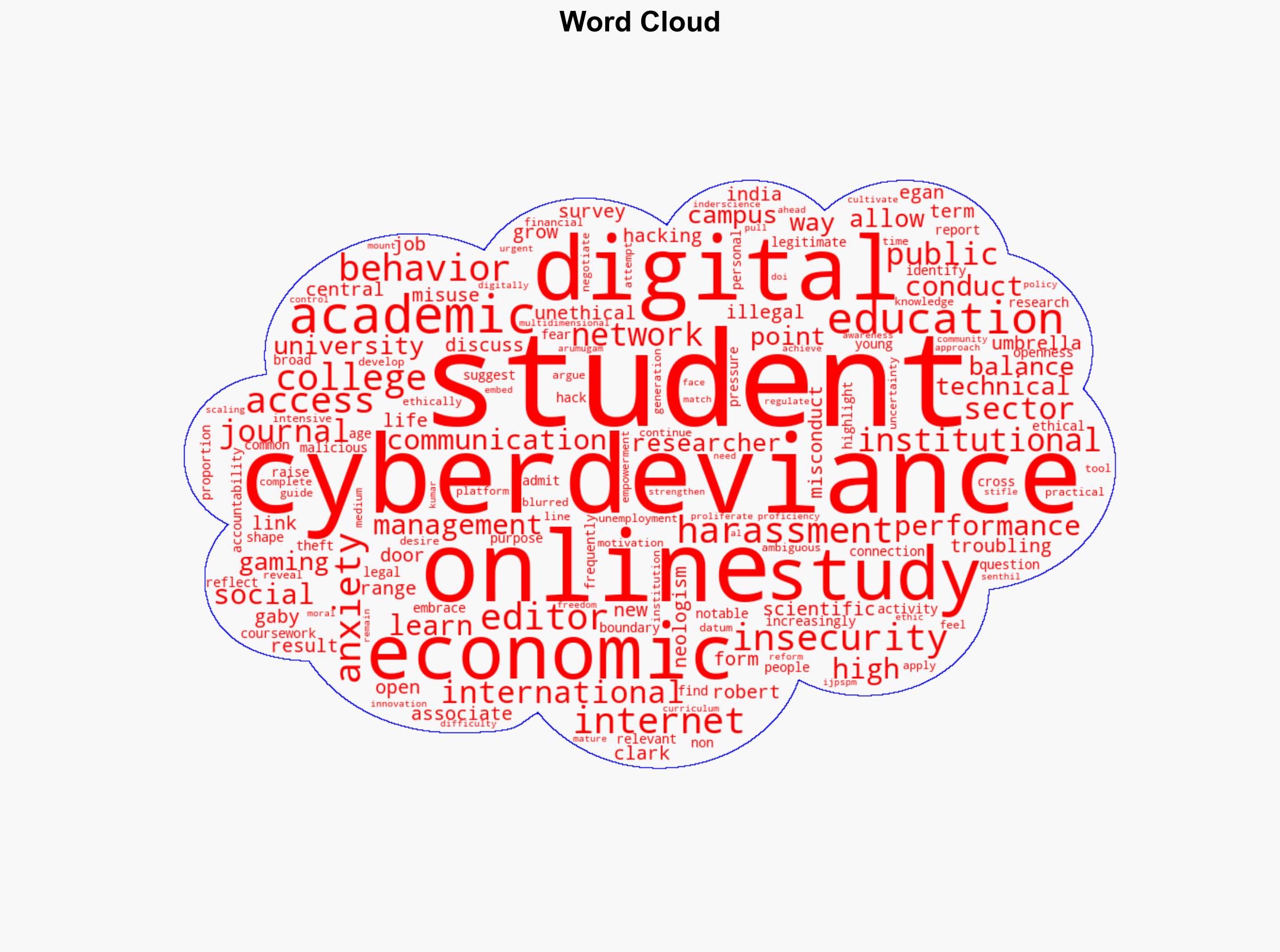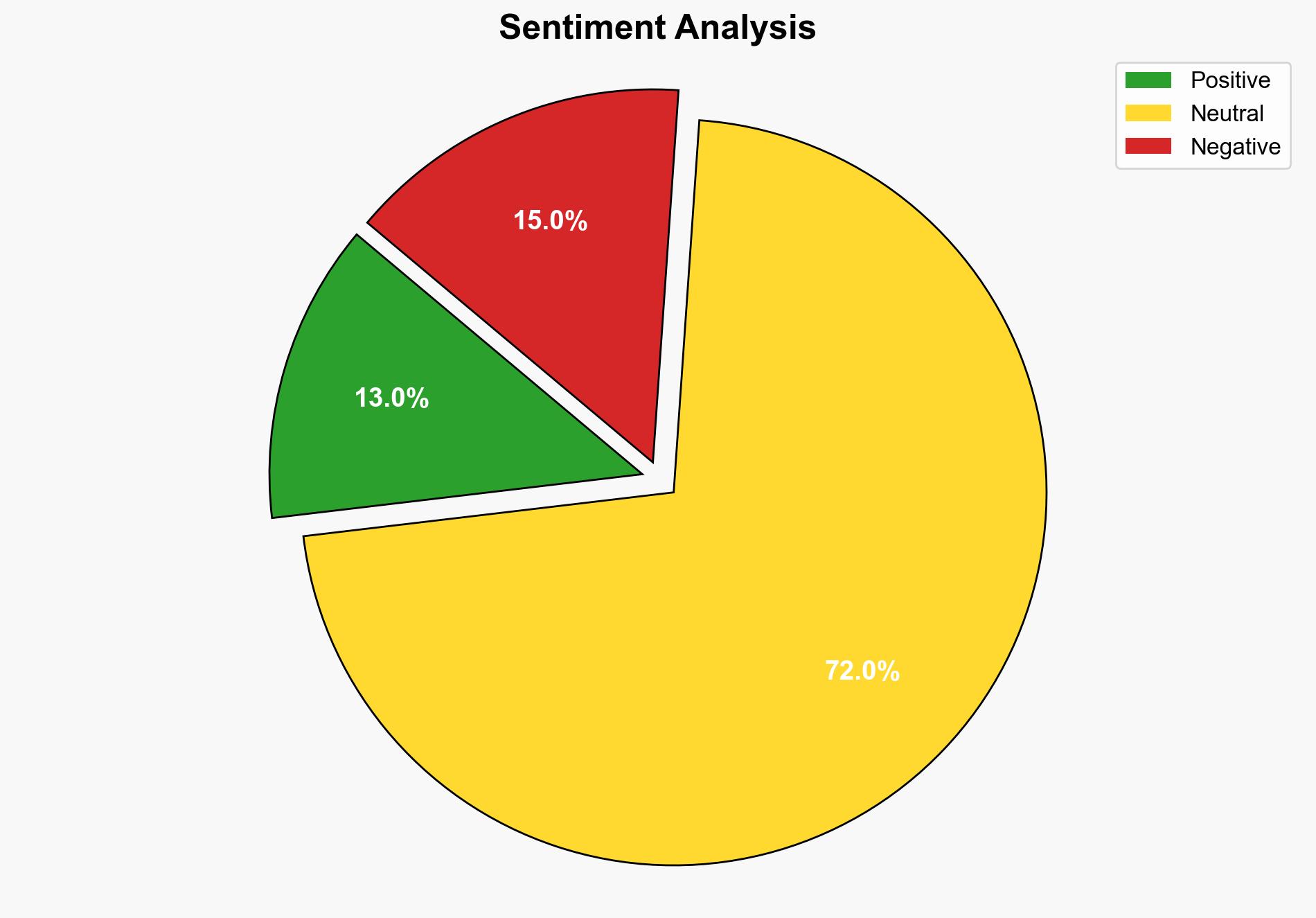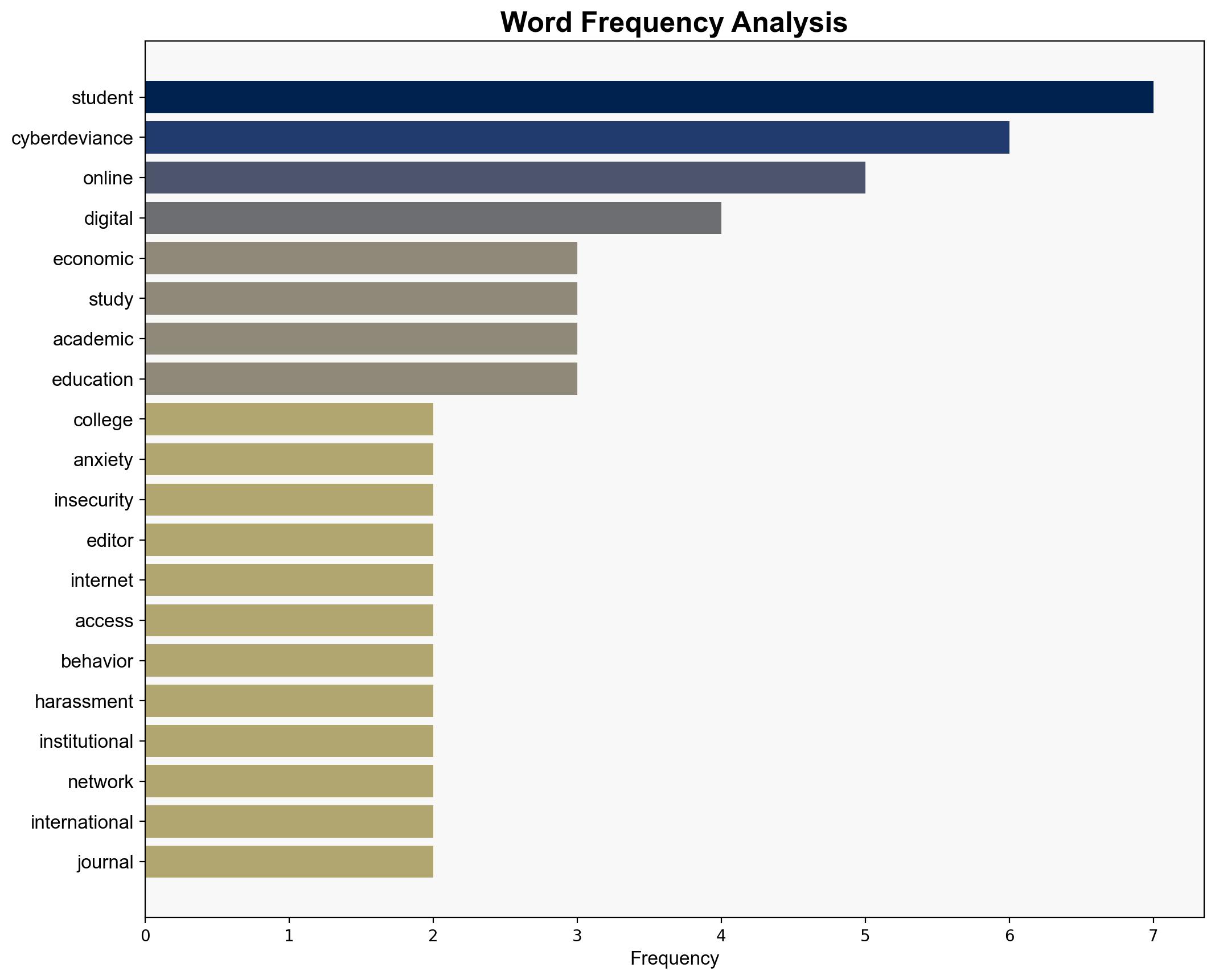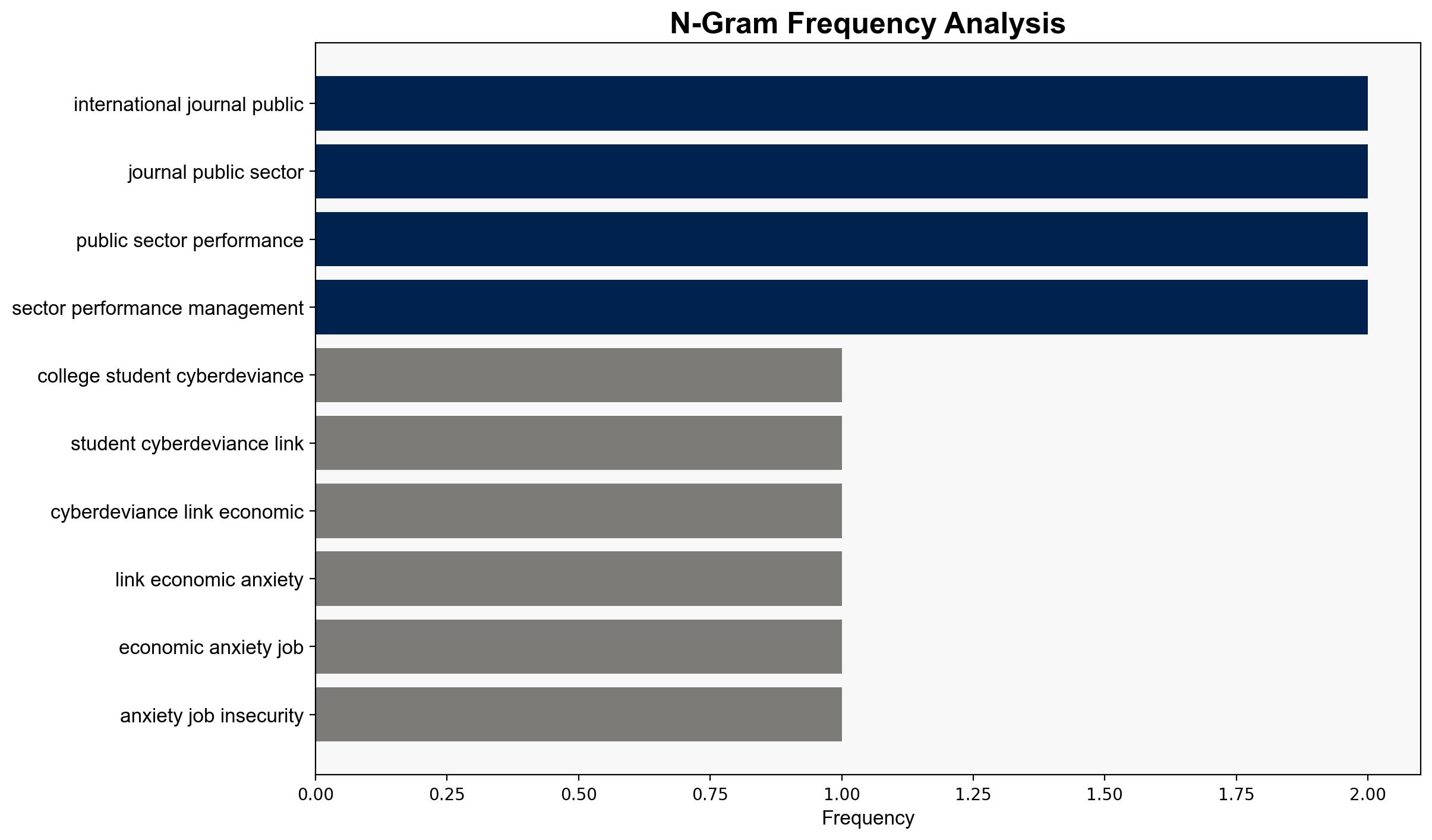College students’ cyberdeviance linked to economic anxiety and job insecurity – Phys.Org
Published on: 2025-10-16
Intelligence Report: College students’ cyberdeviance linked to economic anxiety and job insecurity – Phys.Org
1. BLUF (Bottom Line Up Front)
The analysis suggests a moderate confidence level that economic anxiety and job insecurity are significant drivers of cyberdeviance among college students. The most supported hypothesis indicates that these factors contribute to unethical online behavior as students seek to apply their technical skills in practical, albeit ethically ambiguous, ways. It is recommended that educational institutions develop comprehensive digital ethics curricula and enhance access controls to mitigate these behaviors.
2. Competing Hypotheses
1. **Hypothesis A**: Economic anxiety and job insecurity are primary motivators for college students engaging in cyberdeviance. The pressures of uncertain job prospects lead students to exploit digital platforms unethically to gain skills and experience perceived as necessary for future employment.
2. **Hypothesis B**: Cyberdeviance among college students is primarily a result of increased digital access and the lack of adequate digital ethics education, rather than economic anxiety. The behavior stems from a cultural shift towards digital empowerment without sufficient guidance on ethical boundaries.
Using the Analysis of Competing Hypotheses (ACH) 2.0, Hypothesis A is better supported due to the correlation between economic pressures and the reported increase in cyberdeviance. However, Hypothesis B remains plausible given the rapid digital transformation in educational environments.
3. Key Assumptions and Red Flags
– **Assumptions**: Both hypotheses assume that students have sufficient digital literacy to engage in cyberdeviance and that economic anxiety directly influences online behavior.
– **Red Flags**: The study’s geographic focus on India may limit generalizability. There is also a potential bias in self-reported data, as students may underreport unethical behavior.
– **Blind Spots**: The analysis may overlook cultural factors influencing cyberdeviance and the role of peer influence in normalizing such behavior.
4. Implications and Strategic Risks
The findings suggest a risk of escalating cyberdeviance if economic conditions worsen or if digital ethics education does not improve. This could lead to increased institutional vulnerabilities and reputational damage. Additionally, there is a potential for these behaviors to evolve into more sophisticated cyber threats if left unchecked.
5. Recommendations and Outlook
- **Mitigation**: Develop and integrate digital ethics courses into university curricula to address ethical boundaries and responsibilities in digital spaces.
- **Access Control**: Implement stronger access controls and monitoring systems on institutional networks to prevent unauthorized activities.
- **Scenario Projections**:
– **Best Case**: Successful integration of digital ethics education reduces cyberdeviance and enhances students’ employability.
– **Worst Case**: Economic downturn exacerbates cyberdeviance, leading to significant data breaches and institutional damage.
– **Most Likely**: Incremental improvements in digital ethics education lead to a gradual reduction in cyberdeviance.
6. Key Individuals and Entities
– Gaby Clark
– Robert Egan
– Senthil Kumar Arumugam
7. Thematic Tags
national security threats, cybersecurity, counter-terrorism, regional focus





